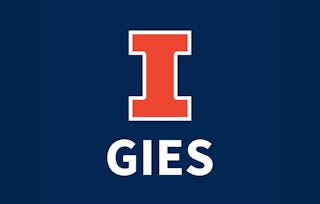Accountants perform a wide variety of activities which include, but are not limited to, accounting, auditing, tax, management consulting, and financial management. However, a professional accountant’s responsibility is not exclusively to satisfy the needs of an employer or professional services client. One of the distinguishing characteristics of the accounting profession is its acceptance of the responsibility to act in the public interest.

Professional Responsibility and Ethics for Accountants

Professional Responsibility and Ethics for Accountants

Instructor: Susan Curtis
5,501 already enrolled
Included with
70 reviews
What you'll learn
Demonstrate understanding of the role of codes of conduct in a profession.
Demonstrate understanding of values and ethics in relationship to human behavior.
Describe the moral tenets of self-interest, theories of business purpose, and the responsibilities of business management.
Demonstrate understanding of key internal and external elements of corporate governance systems.
Skills you'll gain
Details to know

Add to your LinkedIn profile
35 assignments
See how employees at top companies are mastering in-demand skills

There are 4 modules in this course
In this module, you will become familiar with the course, your instructor and your classmates, and our learning environment. This orientation will also help you obtain the technical skills required to navigate and be successful in this course. You will then be introduced to and explore the following three concepts: professional, professions and professional responsibility. It begins with reflections on what it means to be professional. These are followed by a discussion of why being professional is not always sufficient. The discussion introduces what a CPA is and why professions exist. The three characteristics of a profession are identified. Next, the concept of professional responsibility is introduced, followed by a discussion of the three parts of professional responsibility: identity, standards and judgment. The module concludes with a professional association website exploration exercise. The exploration introduces resources central to professional responsibility in accounting. The website exploration exercise also introduces the requirements for obtaining and maintaining CPA licensure and the AICPA Code of Professional Conduct.
What's included
9 videos8 readings8 assignments1 discussion prompt1 plugin
This module is an introduction to values and ethics. The module begins with reflections on values and how they can be revealed by the objects we choose to keep and what actions we choose to take. The reflections are followed by discussion of what values and norms are and the distinction between them. Next, the process of learning values and norms is described, followed by a brief discussion of why values may be influenced and changed throughout life. Then, a brief description of how most decisions about what is right and wrong are made provides the basis for understanding why it is important to build ethical capacity. The three areas of moral philosophy, meta-ethics, normative ethics and applied ethics are introduced, followed by brief discussions of exemplar issues/questions that are addressed by each area, which include: characteristics of values, ethical theories and universal values. Discussion of three categories of ethical theories, deontological, teleological and virtue ethics explains the basis on which each determines what the right or good thing to do is. This module also concludes by introducing an on-line resource, one that is useful for developing or refreshing understanding of ethics: the Ethics Unwrapped website. A few short videos from the website build upon the previous discussion of ethical theories and add a brief introduction to two consequentialist ethical theories: hedonism and utilitarianism.
What's included
7 videos2 readings9 assignments
This module introduces the debate over what the purpose of business is. The module begins with discussion of legal liability in the three basic legal forms of business: sole proprietorship, partnership and corporation. Clips from interviews with three small business owners illustrate the work ethic they bring to managing their businesses. Next, the development of capitalism is contextualized as a response to mercantilism, the Western European economic system that was dominant when Adam Smith was his two most influential treatises. The discussion draws attention to the ethical roots of capitalism; the centrality of personal autonomy and the compassionate connotations of self-interest. More interview clips illustrate that the concerns of the three small business owners go well beyond merely earning a profit. Separation of management and owners in the modern corporate form of business has led to debate over what the purpose of a business is. The debate over what and to whom corporate management is and should be accountable is explored. The module introduces two contrasting legal theories of firm. The first theory is the trust relationship between corporate owners and management that is forged through private property rights. The second is the public interest nature of the relationship between society and business. The interests of shareholders and other stakeholders often conflict, but the responsibilities of management to corporate owners and society co-exist. Further discussion provides insights into situational factors that can lead to and justify prioritization of broader stakeholder and societal interests over the general rule of shareholder primacy. Popular culture strongly influences the beliefs of a society. The module ends with a brief discussion of the source of a controversial but highly popular belief that the only moral responsibility of business is to maximize shareholder wealth.
What's included
8 videos1 reading7 assignments1 peer review
Business generates wealth and prosperity, but hyper-norm beliefs about fairness and theories of distributive justice significantly affect how wealth is distributed throughout society. Corporate governance is the system (of rules, practices, policies, institutions and laws) that directs and controls business. Corporate governance also is one of the key mechanisms through which society determines how wealth and prosperity is distributed. This module introduces corporate governance elements that are external (laws and regulatory agencies) and internal (boards of directors, ethics and compliance programs and organizational culture) to a corporation. The module includes discussion of two sometimes competing themes that drive the need for and development of corporate governance. These themes extend from the debate over the purpose of business and responsibilities of management that were introduced in the last module. The need for corporate governance is often motivated by the idea of shareholder primacy and the need to protect the private property rights of corporate shareholders in the context of incomplete contracting and information asymmetry. Yet, for nearly a century arguably the most significant legislative reform in US business regulation has resulted from major economic downturns that had significant and wide-spread negative impacts on society as a whole and large-scale corporate ethical lapses, scandals and fraud that ran counter to societal notions of fairness.
What's included
12 videos3 readings11 assignments1 plugin
Build toward a degree
This course is part of the following degree program(s) offered by University of Illinois Urbana-Champaign. If you are admitted and enroll, your completed coursework may count toward your degree learning and your progress can transfer with you.¹
Instructor

Offered by
Explore more from Leadership and Management
 Status: Free Trial
Status: Free Trial Status: Preview
Status: PreviewUniversity of Illinois Urbana-Champaign
 Status: Free Trial
Status: Free TrialLearnKartS
 Status: Free Trial
Status: Free TrialAlex Genadinik
Why people choose Coursera for their career

Felipe M.

Jennifer J.

Larry W.

Chaitanya A.
Learner reviews
- 5 stars
84.28%
- 4 stars
15.71%
- 3 stars
0%
- 2 stars
0%
- 1 star
0%
Showing 3 of 70
Reviewed on Jul 12, 2020
The COURSERA is very useful and knowledge improvement of the everyday is leaning for new and I like the course
Reviewed on Oct 7, 2020
i really enjoy this course but something is wrong i verified my ID and to date i have not receive my certified
Reviewed on Jan 26, 2025
Very good. I found a better knowledge after I completed this course.

Open new doors with Coursera Plus
Unlimited access to 10,000+ world-class courses, hands-on projects, and job-ready certificate programs - all included in your subscription
Advance your career with an online degree
Earn a degree from world-class universities - 100% online
Join over 3,400 global companies that choose Coursera for Business
Upskill your employees to excel in the digital economy
Frequently asked questions
Once you enroll for a Certificate, you’ll have access to all videos, quizzes, and programming assignments (if applicable). If you choose to explore the course without purchasing, you may not be able to access certain assignments.
You will be eligible for a full refund until 2 weeks after your payment date. You cannot receive a refund once you’ve earned a Course Certificate, even if you complete the course within the 2-week refund period.
Yes! Coursera provides financial aid to learners who would like to complete a course but cannot afford the course fee. To apply for aid, select "Learn more and apply" in the Financial Aid section below the "Enroll" button. You'll be prompted to complete a simple application; no other paperwork is required.
More questions
Financial aid available,

